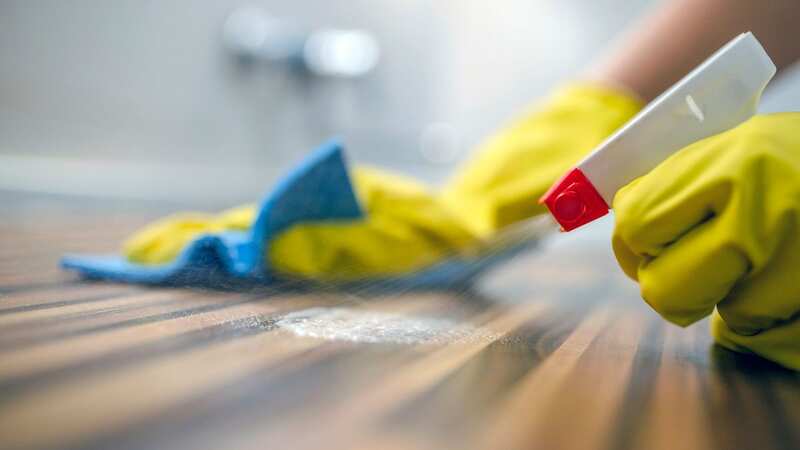Everyday kitchen items crawling with bacteria that could be making you sick

Some daily household items could be responsible for making you sick due to being infested with bacteria, experts have warned.
These items range from sponges to chopping boards - while they may seem clean, this could be far from the case. Expert Danielle Mason, a cleaning content creator on - or - has shared the full run-down of appliances that could be swarming with germs.
Earlier this week, we reported on a cheap and easy way to make your own disinfectant. All you need to do is fill half a spray bottle with rubbing alcohol, 25ml of white vinegar, and 25 drops of your favourite essential oils.
Below we share a full list of regular household items that could be crawling with germs.
Kitchens, door handles and buttons
These are often neglected when cleaning the kitchen, Mason explains. “Most of the time, they don’t think it is important, but as you’re commonly handling raw meat and food, it’s extremely important to keep these areas clean, due to cross-contamination. Always sanitise with a cloth.”
 Cleaning guru shares why you shouldn't make your bed first thing in the morning
Cleaning guru shares why you shouldn't make your bed first thing in the morning
Cloths
This is another thing which is often overlooked - they are used to keep the kitchen clean, but could they be spreading bacteria everywhere? She told : "I always leave my clothes to soak in bleach before going to bed every night,” says Mason.
“Also, make sure you’re replacing the clothes – I would suggest a new one every two weeks, whilst still bleaching every night. And make sure you’re not using this cloth on anything other than the kitchen, as you do not want to cross-contaminate.”
Sponges
These are unhygienic because they are always damp and can therefore carry E. coli. “People tend not to use sponges, as they carry so many more germs, and even putting them in the microwave will not kill all of them. Avoid a sponge where possible,” Mason explains.
Dish towels and tea towels may not be changed anywhere near often enough. “You should have one for every day of the week, as they carry so many bacteria and germs, which get spread across the kitchen,” she says.
Chopping boards
Chopping boards – particularly wooden ones – could be a haven for bacteria. “You should have a different colour for different types of food, one for meat, fruit, and other foods,” advises Mason.
“The best way to clean them is in a dishwasher, as it’s good to get rid of all the germs due to the very high heat. If you don’t like the dishwasher, then boil the kettle water and leave the chopping boards to soak in it.” It is best to avoid wooden chopping boards altogether, as these cleaning methods may damage them.
Kitchen sink
The kitchen sink is a “massive breeder of bacteria and grime; a distinct microbiome is found in sinks”, Mason says. “The plumbing area found beneath sinks revealed microbial communities dominated by a group of bacteria called Proteobacteria. This phylum includes pathogens such as Salmonella and E. coli, which can cause serious disease,” Mason shares.
“Nothing from outside the kitchen should cross-contaminate [the sink]. For example, never wash your floors and put dirty water in your kitchen sink, always throw it down the toilet.”
How do you possibly clean the inside of your sink and drains?
“Baking soda and vinegar is the best way to clean your sink out, or bleach, but you must be careful with bleach, as it can stay in the bottom of your sink, depending on the material it’s made of.” “You can prevent mice and rodents from entering the kitchen by covering any small crevices or cracks,” she says.
Fridges
Fridges should be deep-cleaned every two months, Mason believes. “A normal cleaning – the wiping of shelves – should be done every other day with soapy water. For any bad smells, use baking soda, which will absorb the smell from the fridge,” Mason continues.
 Man finds £47,000 stuffed into walls of new home - but can't keep it all
Man finds £47,000 stuffed into walls of new home - but can't keep it all
It might be time to end some bad habits and keep your house as healthy and hygienic as possible.
Read more similar news:
Comments:
comments powered by Disqus

































